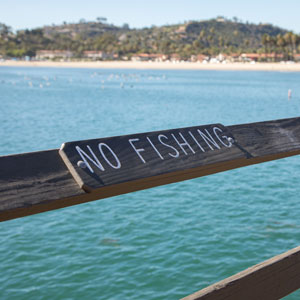Call Now For A Personalized Confidential Consultation!
Call Now For A Personalized Confidential Consultation!

In this article, you can discover…
When you are being questioned by law enforcement, including Fish and Wildlife officers, you have the right to remain silent and a right to an attorney. These are constitutional rights guaranteed by the Fifth and Sixth Amendments of the US Constitution.
However, you don’t have an absolute right to remain silent here. Fish and Game Code Section 2012 states that hunters and fishers are required to display relevant licenses and tags for the birds, mammals, fish, reptiles or amphibians that have been taken. This also includes accounting for any equipment, devices or apparatus that have been used to take the game in question. Ultimately, it is important to remain as silent as possible to avoid any further penalties.
If you are accused of a violation by a fishing game officer or Fish and Wildlife officer, you do have a right to remain silent. If you are facing accusations, it is likely that you will be subject to more than just questioning about what you caught that day. When accusations are on the table, you should refuse any additional statements and demand to speak with a lawyer.
While you are required to sign any citation by any law enforcement officer, this does not count as an admission of guilt. If you refuse to sign your citation, the officer has the right to arrest you for refusing to promise to appear in court, as this is ultimately the purpose of the citation. The officer has the right to enforce your compliance before a judge, so you are required to sign your citation, but this will not operate as any sort of admission of guilt.
Any statement you make to law enforcement can be used against you as a statement of interest or misinterpreted as a confession. For this reason, it is important to exercise your right to remain silent and avoid revealing too much information while you demand to speak to an attorney. It is not uncommon for people to accidentally provide additional information that they think will be helpful, only to inadvertently make things worse.
As long as the officer knows that they are being recorded, you can legally record any interaction with law enforcement in California. California is a two-party consent state, meaning that both parties must be aware that the conversation is being recorded. Additionally, your recording cannot interfere with the official duties of the law enforcement officer, but it is legal to record your interaction for your own protection.
Oftentimes, clients make the mistake of thinking that they can talk their way out of an investigation rather than remaining silent. This often leads to providing too much information that can be used by law enforcement to incriminate you. It is also not uncommon to see clients consenting to searches that end up revealing information that can be used to build a case against them.
Another common mistake, and likely the largest, is making false statements during an investigation. Ultimately, it is better to say nothing at all than to make a false statement that could ultimately jeopardize your ability to fish and hunt in California. Once an officer begins accusing you, it is important to avoid these pitfalls and remain silent until you have a lawyer present.
Still Have Questions? Ready To Get Started?
For more information on Avoiding Self-Incrimination In Fish And Wildlife Investigations, an initial consultation is your next best step. Get the information and legal answers you are seeking by calling (415) 728-9982 today.
Copyright©2025, Law Office of E. Michael Linscheid. All Rights Reserved.